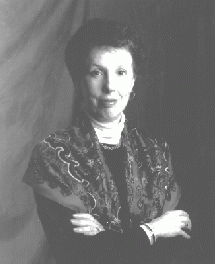Page 45
[Begin Tape 1, Side A]
Moorhus: We finished up last time with the death of your husband, Nick Coleman. That was a personal event, but what kind of an impact did it have on your professional life?
Howell: It had both a positive and a negative effect. The positive effect was that even though I had been married to him, with him dead, I didn't have a clear and present conflict of interest with the newspaper covering a man in politics who was a public figure. So that actually was a plus, because that problem had always been in the background of whatever I did. The minus of it was that personally it was just a blow to me, that was very hard to come back from. It took a long time to come back from it.
I threw myself into my work in my forties—I was forty when he died—and I worked for the next seven or eight years solidly, until I married Peter [Magrath]. So I threw myself into my work, and I really tried to do an A number one, terrific job, and I had the time to do it. I had friends, and I certainly had my stepchildren, but I would say that from the time I was forty until the time I married again when I was forty-seven, I spent at the office. I worked six or seven days a week. I remember one time being in the office at midnight on a Saturday night. I mean, I worked.
The energy I threw into the newspaper [St. Paul Pioneer Press] was good for the newspaper, I think, in the sense that I was able, because I was working so hard, to pull it up to a level where it hadn't been before, so that was a plus. On the other hand, I totally identified with the paper, and there's probably some bad to that, to being obsessed with your work.
I became then known on my own, and while I always had had a decent reputation as a journalist, I then could take a huge step into management and become a managing editor. I hadn't ever been known as just Nick Coleman's wife, but I then could really take a very clear direction on my own. Part of that was exhilarating. Part of it, I was just, why did I want to go home at night? There wasn't anything there.
Moorhus: Yet one of the things you said earlier in the interview was that your spiritual life really took hold in your forties.
Howell: Yes.
Moorhus: So that would have been this same period, is that right?
Howell: Yes, although I think my husband's death made me look inward more, but it had its main effect, I would say, in how I worked. I wasn't then, and am not now, particularly a church-goer, but I began to look at my work in a much more spiritual manner, much more compassion about the community and caring about the community, that kind of spirituality. "What can this newspaper do to make this community a better place to live in? Let's put this paper on the side of what's right." That kind of thing.

